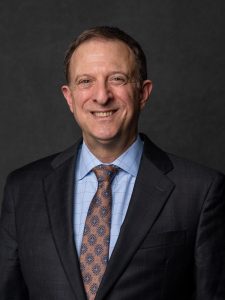The eleventh AI Connect webinar, hosted by the U.S. Department of State and the Atlantic Council’s GeoTech Center on February 23, 2023, focused on applications of artificial intelligence (AI) in climate change, agriculture, and food security.
The event began with a fireside chat between Dr. Lloyd Whitman, Senior Director of the GeoTech Center, and Dr. Simon Liu, Administrator for the Agricultural Research Service within the U.S. Department of Agriculture (USDA). The discussion addressed the varied work of the Agricultural Research Service to utilize data for ecological, agricultural, and environmental scenarios within the United States and with partner institutions abroad. Dr. Liu concluded his session by emphasizing that clean and accurate data will lie at the core of implementing successful, operational artificial intelligence applications in the agricultural and research sectors.
The fireside chat was followed by two panel discussions. The first panel, moderated by GeoTech Center Assistant Director Giulia Neaher, focused on utilizing AI for applications related to climate change. Panelists included Associate Director for Research and Innovation at the Red Cross Red Crescent Climate Centre Dr. Pablo Suarez, Senior Research Manager for IBM Brazil Dr. Bianca Zadrozny, Senior Staff Scientist for John Hopkins Applied Research Laboratory (JHUAPL) Dr. Marisa Hughes, and the Costa Rican National High Technology Center’s National Advanced Computing Collaboratory Director Dr. Esteban Meneses. First, Dr. Suarez emphasized the importance of integrating intelligent systems with humanitarian systems to address climate change, highlighting a case study from his past work in Togo. Next, Dr. Zadrozny described ongoing efforts at IBM Brazil to address extreme weather events by using AI to enhance seasonal weather forecasting. Ms. Hughes shared the varied ways JHUAPL is modeling AI to assist with monitoring and forecasting air quality and Arctic Ice. Lastly, Dr. Meneses discussed the use of AI in seismic wave analysis to assist with resilience planning. Altogether, the discussants provided insight into the application of AI for accurate climate modeling and noted that AI-driven models can boast superior certainty and transparency relative to traditional models.
The webinar concluded with a second panel, moderated by GeoTech Center Program Assistant Emily Sespico, that highlighted applications of AI within food security efforts. Dr. Hannah Safford, Senior Policy Advisor for the White House Climate Policy Office, emphasized the importance of collaborative efforts to tackle climate change and food security. Next, Swetha Kolluri, Head of Experimentation for the United Nations Development Program India (UNDP India), explained the necessity of interagency approaches to resolve data siloing in AI efforts to improve climate and food security through open-source tools like DiCRA. Lastly, Dr. Illias Tagkopoulos, Director of the University of California Davis’s AI Institute for Next Generation Food Systems (AIFS), shared ongoing work to leverage AI for a better food system and healthier society. Throughout the webinar, each expert emphasized the importance of tailoring AI climate and food security solutions to specific needs in order to build trust and create equitable, lasting impact.
Presentation Resources
Lily McFeeters
- Resource: NIST AI Risk Management Framework
Marisa Hughes
- Resource: AI for Greenhouse Gas Inventories
Swetha Kolluri



